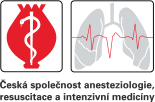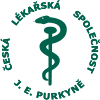Anest. intenziv. Med. 1999;10(3):135-139
The management of the therapy of the severe hyponatremiaArticles
- Metabolická jednotka intenzivní péče, I. interní klinika FN Plzeň, přednosta doc. MUDr. Karel Opatrný, CSc.
- 1 Radiodiagnostická klinika, Fakultní nemocnice Plzeň, přednosta doc. MUDr. Boris Kreuzberg
Severe symptomatic hyponatremia (serum Na < 110-115 mmol/l) which develops within less than 48 hours is a life-threatening complication becauseof seizures and other symptoms of brain oedema. Its rapid correction to normal values is mandatory and is connected with minimal risk of neurologicsequalae. On the contrary, in case of symptomatic hyponatremia which developed chronically, rapid correction is indicated only to amelioratesymptoms. Too rapid correction may cause severe neurologic deragements - osmotic demyelinisation syndrome (ODS). Incidence of brain injury dueto rapid changes in osmolarity is in intensive care patients very likely more frequent than currently anticipated. As CT scan of the brain is frequentlynegative, NMR seems to be a method of choice in imaging of areas of demyelinisation in typical brain stem and basal ganglia localisations.
Keywords: hyponatremia; demyelinisation; infusion therapy; critically ill; intensive care
Published: June 1, 1999 Show citation




